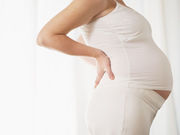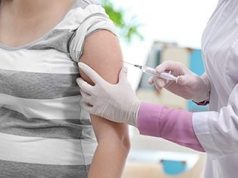Supplementation in pregnancy and infancy linked to reduced sensitization at 18 months
MONDAY, April 18, 2016 (HealthDay News) — Vitamin D supplementation during pregnancy and infancy may reduce aeroallergen sensitization in children, according to a study published online April 6 in Allergy.
Cameron C. Grant, M.B.Ch.B., from the University of Auckland in New Zealand, and colleagues conducted a randomized, double-blind, placebo controlled trial. Pregnant women (27 weeks of gestation to birth) and then their infants were randomized to receive placebo or one of two doses of daily oral vitamin D (placebo/placebo; 1,000 IU/400 IU; 2,000 IU/800 IU). Specific serum immunoglobulin (Ig)E antibodies were measured when the children were 18 months old.
Specific IgE was measured in 71 percent of 260 enrolled children. The researchers found that for four mite antigens: Dermatophagoides farina (Der-f1, Der-f2) and Dermatophagoides pteronyssinus (Der-p1, Der-p2), the proportion of children sensitized varied for placebo, lower-dose, and higher-dose vitamin D, respectively: 18, 10, 2 percent; 14, 3, 2 percent; 19, 14, 3 percent; and 12, 2, 3 percent, respectively (all P < 0.05). Study group differences were seen in the proportion of children with primary care visits for asthma (11, 0, 4 percent, respectively; P = 0.002), but not for other respiratory diagnoses.
“Vitamin D supplementation during pregnancy and infancy reduces the proportion of children sensitized to mites at age 18 months,” the authors write. “Preliminary data indicate a possible effect on primary care visits where asthma is diagnosed.”
Abstract
Full Text (subscription or payment may be required)
Copyright © 2016 HealthDay. All rights reserved.








